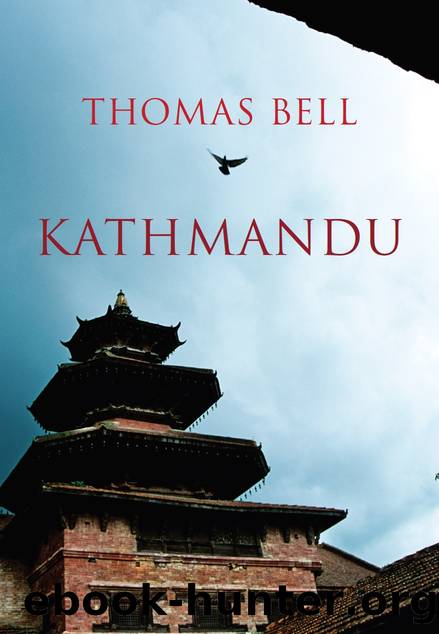Kathmandu by Thomas Bell

Author:Thomas Bell [Bell, Thomas]
Language: eng
Format: epub
Tags: Asia, Autobiography, Biography, History, India & South Asia, Personal Memoirs, Travel
ISBN: 9781910376393
Google: NVgrDwAAQBAJ
Amazon: 1910376388
Publisher: Haus Publishing
Published: 2016-04-14T23:00:00+00:00
☀
Life for most of the Valley’s people was still untouched by modern change. The Newar Jyapu farmers, who lived in the cities and tilled the fields outside, paid almost all the rice they grew in rent to their landlords, then exchanged whatever was left for the wheat flour which, mixed with water, salt and turmeric, formed their diet.
They measured their days and seasons by the moon. After a life of ceaseless, gruelling labour, a middle-aged person might one day feel cold, or unusually tired, lie down and die shortly afterwards. The young were threatened by accidents, while tunnelling for the lakebed sediments they needed to fertilize their fields; or they might slice off their fingers ‘in the delirium of hard work’.7 The Jyapus were obliged to clean the homes and wash the clothes of the landlord’s family, oil and massage the women, and carry his children on their shoulders when the family made journeys. If a member of the landlord’s family died then the tenants would be in attendance, providing their services during the many days of mourning rituals. Despite these obligations, tenants were liable to be thrown off the land on a whim, with no redress.
The extraordinary thing is that despite their hardship and exploitation, oral histories describe a sense of injustice arriving like an epiphany only in the 1940s, when the peasants began to tentatively form their first, semi-political, farmers’ associations.8 A few years later, communist politics would flourish among them. Nepali communism, with its roots in peasant misery, has almost always emphasized class exploitation and ‘land to the tiller’, eschewed collectivization, and been moderate or ambiguous in its atheism, if it is atheist at all.
Among the elite, the first stirrings of a modern political consciousness had occurred earlier. In the mid-1930s a kind of proto-political party called the Praja Parishad (People’s Council) was formed in secret. It managed to make contact with King Tribhuvan, the latest Shah king to be held a virtual prisoner by the Ranas, who was naturally resentful at the royal family’s treatment. Another underground group was the ominously named Raktapat Kommittee (Bloodshed Committee), which began sending threatening letters to senior officials. And in 1937 a man named Shukra Raj Shastri was arrested for preaching an egalitarian interpretation of the Bhagavad Gita. This type of subversion had its constituency among members of the leading families, some of whom had been educated in India, including among disenchanted members of the Rana family itself.9
In 1940 a letter from the Bloodshed Committee was delivered to at least forty-one important men in Kathmandu. It presented a strange mixture of communism, conservative Hinduism, and blood-curdling threats. ‘The people have always remained mute-dumb,’ the author observed.
Download
This site does not store any files on its server. We only index and link to content provided by other sites. Please contact the content providers to delete copyright contents if any and email us, we'll remove relevant links or contents immediately.
